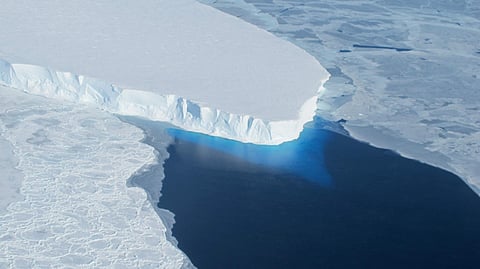

Researchers have found strong evidence that the risk for armed conflict is higher after a climate-related disaster, adding that the threat is present exclusively in vulnerable countries. According to the study, published in the journal Global Environmental Change, the disasters include storms, floods and droughts - the frequency and intensity of which will increase in the future, due to climate change.
"When it comes to droughts in Nigeria or storms in Pakistan, where you have large marginalised populations and little state presence, the picture may well change," said study lead author Tobias Ide from the University of Melbourne in Australia.
The scientists said the study provides evidence for policy makers such as the United Nations Security Council, which has been called on to invest in climate adaptation and risk reduction for the millions of people already suffering from the effects of climate change.
"The question 'Will a warming world also be a world with more violent and armed conflicts?' has been a very real one for political leaders and civil societies across the world," Ide said. "Climate change makes tense social and political situations even worse, so climate-change disasters may act like a 'threat multiplier' for violent conflicts," he added.
According to Ide, only countries with large populations, the political exclusion of ethnic groups, and relatively low levels of economic development, are susceptible to disaster-conflict links. He said measures to make societies more inclusive and wealthier are options to increase security in a warming world.
"We find that almost one-third of all conflict onsets in vulnerable countries over the recent decade have been preceded by a climate-related disaster within seven days," said study co-author Carl-Friedrich Schleussner from Climate Analytics, a non-profit climate science and policy institute, based in Germany.
"This does, however, not mean that disasters cause conflicts, but rather that occurrence of disasters increase the risks of an outbreak," Schleussner said.
The study cautioned with examples in the past how extreme weather events have been followed by armed conflicts in different parts of the world.
"If we look at what happened in Mali when a severe drought occurred in June 2009, we can see that the militant Al-Qaeda in the Islamic Maghreb (AQIM) group exploited the resulting state weakness and desperation of local people to recruit fighter and expand its area of operation," Ide said. "The Philippines were another country where recurrent disasters weakened government structures in contested regions, hence opening a space for rebel groups," he added.
In a large majority of cases, the scientists said, opportunity factors drove the onset of armed violence. Rather than aggrieved populations, they said, rebels exploited the temporary weakness of the state after a disaster, to stage attacks.
"The most surprising result of our study for me was the prevalence of opportunities for armed violence over those related to grievances in post-disaster situations," said Michael Brzoska, a co-author of the study from the University of Hamburg in Germany.
